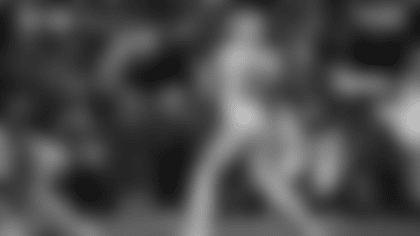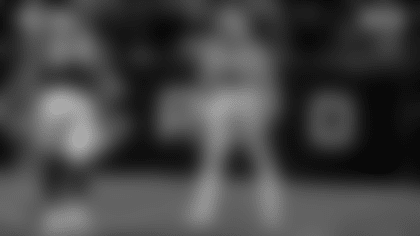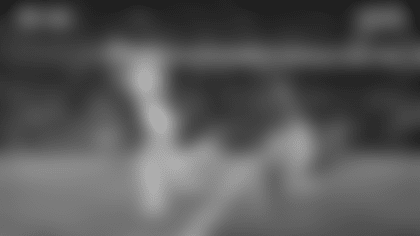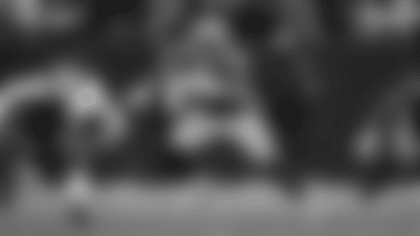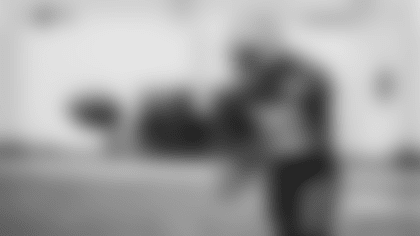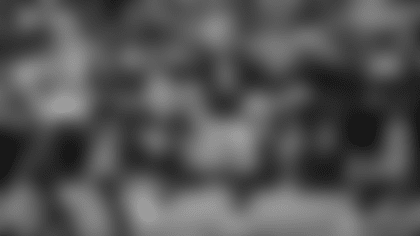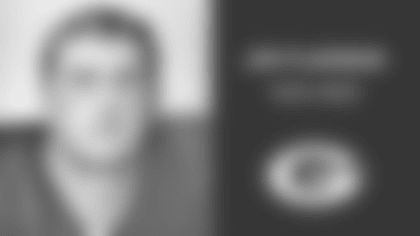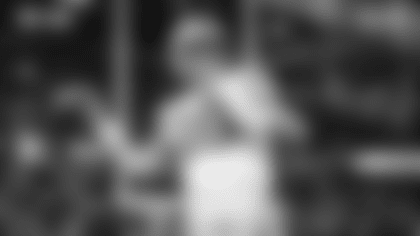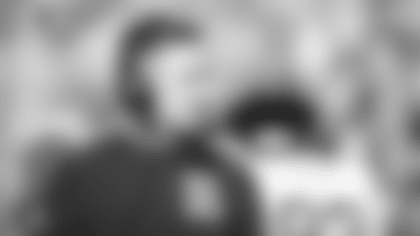Through the season's first 10 games, the Packers' red-zone defense was definitely one of the team's strengths, but like some other segments of Green Bay's game, it has suffered a dramatic drop-off in the past couple of weeks.
Head Coach Mike McCarthy pointed it out during his Monday press conference, and a check of the statistics shows how noticeable it's been.
After 10 games this season, the Packers had allowed opponents just 12 touchdowns in 29 red-zone possessions. On the other 17 drives, Green Bay had forced 12 field goals and captured five turnovers (four interceptions, one fumble).
But in the last two games, New Orleans and Carolina have combined to score nine TDs in 10 trips into the red zone, with one field goal. In two weeks, the Packers have dropped from fifth in the NFL in touchdown percentage allowed (41.4) all the way to 21st (53.8) in red-zone defense.
"I'm not naïve to the fact that the offense might get down there," McCarthy said. "But once they do, it's about making them kick field goals, and we've done a good job of that. That wasn't the case (Sunday)."
To be fair, all five of Carolina's touchdowns on Sunday came on 1-yard rushes, and on four of those, an explosive play from well outside the red zone put the Panthers in first-and-goal from the 3 or better, including twice at the 1. New Orleans also had one of its TD drives start with a first-and-goal at the 3 after an interception and long runback, so several times, the defense hasn't had much red zone to work with.
But perhaps the most startling fact is that in those 10 red-zone possessions in the last two games, the opposing offense has faced third down only once. That came at the end of the first half at New Orleans, when the Saints had third-and-goal from the 12 and elected to kick the field goal on third down because just six seconds remained on the clock.
All the other red-zone snaps by the Saints and Panthers, 23 in all, came on first or second down, meaning the defense isn't even getting a chance to get a red-zone stop, nor putting the offense in the kind of third-down passing situations that helped lead to four red-zone interceptions in a span of five games earlier this season (Weeks 3-7).
"We've let them down inside the 1 a couple times, so we have to do a better job of not giving up those explosive gains to get down there," defensive coordinator Bob Sanders said.
"Wherever it is, though, we have to work at getting the stop. There's not any one thing that you can say this is the reason or this is why, but certainly we need to do a better job."
The Packers had one shot at forcing a third down in the red zone against the Panthers, but cornerback Tramon Williams was called for pass interference in the end zone on second-and-goal, making it first down on the 1.
{sportsad300}Other than that, the Packers' best chances for stops on scoring drives have come much earlier in the possession. Twice Carolina faced a third-down conversion on the edge of field-goal range and converted. Similarly, New Orleans had calls of third-and-1 and fourth-and-1 in long field-goal range, picked them up, and eventually moved into the red zone to score.
With the team's postseason hopes hinging on every game from here on out, the red-zone defense needs to get back to its stingy ways, beginning this weekend against Houston.
The Texans haven't had the most productive red-zone offense, ranking tied for 20th in the league in TD percentage (22-of-45, 48.9 percent). Interestingly, they have the seventh-most red-zone possessions in the league with 45, and they've come away with no points nine times, tied for most in the league.
The ultimate goal anytime the Texans get into the red zone would be to turn them away empty-handed and increase their league-leading total in that department. The Packers haven't done that since safety Aaron Rouse's interception return for a score against Indianapolis back on Oct. 19, six games ago, and the sooner the Packers can get another red-zone stop like that, the better.
"Not letting them get down there is the main thing," Sanders said. "But when we do, we have to rise up and do a better job than we've done the last two weeks."



